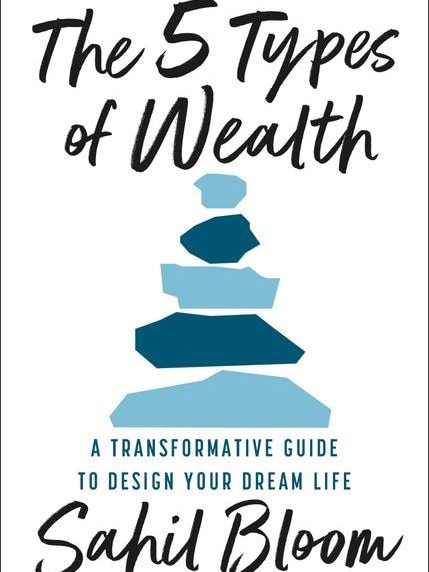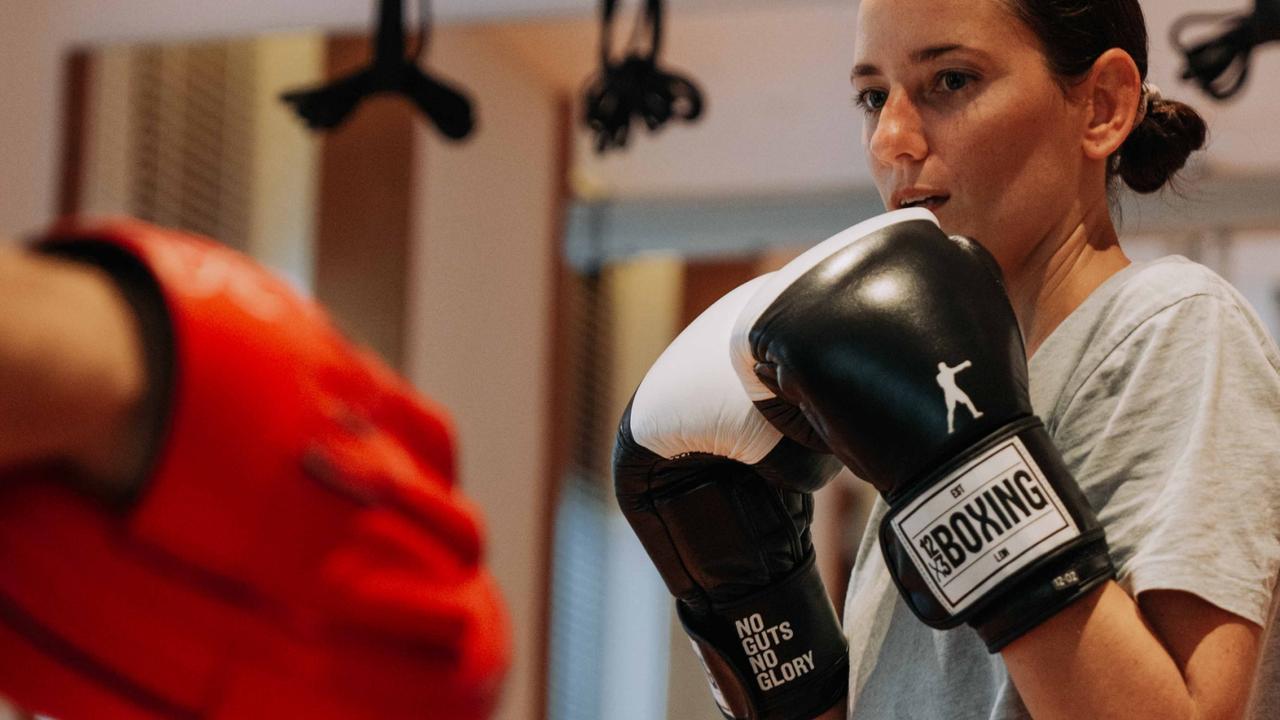The simple words that changed Sahil Bloom’s life and may change yours
The financier had ticked off all the markers of success in his full life – until one statement changed everything.

“You’re going to see your parents 15 more times before they die.”
Those simple words changed my life – and they may change yours.
On a warm evening in May 2021, I sat down for a drink with an old friend. As we settled in at our table, he asked how I was doing. At first, I gave him the standard response that we’ve all grown so accustomed to: “I’m good. Busy!” I said it with all the unintended irony of the modern era, where busy is a badge of honour, as if being more stressed is something to be proud of.
When I asked the same of him, instead of replying with typical busyness one-upmanship, he replied that he was “making time for the important things”, since his father had become sick.
The unexpected vulnerability in his words knocked me off the typical conversation track that defines these “catch-up” encounters. He had opened a new track and, rather than resist, I walked down it, adding that living in California had begun to wear on me, it being so far from my ageing parents on the east coast.
This rare emotional honesty sparked the interaction that altered the course of my life:
Friend: How often do you see your parents?
Me: Maybe once a year right now.
Friend: And how old are they?
Me: Mid-60s.
Friend: Okay, so you’re going to see your parents 15 more times before they die.
Gut punch.
I had to take a deep breath to avoid an instinctively angry response. This was an old friend, one who knew my parents well. It wasn’t meant to be insensitive – it was just a likely fact. The average life expectancy is about 80 years; my parents were in their mid-60s, and I saw them once each year. The maths said I would see them 15 more times before they were gone.
This was the maths that broke me and changed my life.
In late 2022, I asked a dozen 80- and 90-year-olds as part of my annual birthday ritual: “What advice would you give your younger self?” Every year, I conduct a new and (hopefully) interesting exercise that will push me to think and grow. But 2022 felt different.
The birth of my son had altered my relationship with the most fundamental reality: time.

Observing the passage of time – both in his daily changes and in the juxtaposition of the newness of his life with the suddenly apparent maturity of my parents’ lives – had left me wrestling with its very nature.
I decided to explore the wisdom that time has to offer by talking with those who had experienced much more of it. My younger, naive self had sought advice from the richest people he knew when charting his life course. My older, slightly more enlightened self would seek advice from the wisest people he knew to do the same. I wondered how older people would reflect on what they had learned.
What did they regret? Where had they been led astray? What had brought them lasting joy and fulfilment? What had they known for sure that just wasn’t so? What did they know at 90 that they wished they’d known at 30?
I had these conversations with a diverse and fascinating group. A video call with my 94-year-old grandmother in India, born a princess of a small kingdom prior to her family being run out by the British colonists, yielded this beautiful insight: “Never fear sadness, as it tends to sit right next to love.”
An email from a 98-year-old family friend who had spent his career as a Hollywood writer yielded a personal favourite: “Never raise your voice, except at a ball game.”
His 88-year-old wife, a former soap opera star he had met on set and fallen desperately in love with, added: “Find dear friends and celebrate them, for the richness of being human is in feeling loved and loving back.”
In a text message, the 80-year-old father of a close friend expressed regret over his body’s deterioration over the years: “Treat your body like a house you have to live in for another 70 years.” He added: “If something has a minor issue, repair it. Minor issues become major issues over time. This applies equally to love, friendships, health and home.”
A 92-year-old who had recently lost his beloved wife of 70 years said something that brought tears to both of our eyes, his poetic ode to their evening practice: “Tell your partner you love them every night before falling asleep; some day you’ll find the other side of the bed empty and you’ll wish you could tell them.”
My last conversation was with the 94-year-old great-aunt of one of my dearest friends, and she delivered this beautiful closing insight: “When in doubt, love. The world can always use more love.”

The responses ranged from playful and witty (“Dance at weddings until your feet are sore”) to deeply moving (“Never let a good friendship atrophy”). Some were common tropes repeated over the years (“Always remind yourself that your track record for making it through your bad days is perfect”); others were original and thought-provoking (“Regret from inaction is always more painful than regret from action”). The wisdom I gathered was the product of 1042 years of lived experience.
I hadn’t steered the dialogue in any way – I had simply posed the question and let each of them take it as they wished. They had independently focused on a variety of things: build lasting relationships, have fun, invest in your future mental and physical wellness and raise well-adjusted kids. There was certainly immense value in what I heard but perhaps even more value in what I didn’t. In all the advice, insight, and wisdom shared, there was a notable omission.
No one mentioned money.
Before we go any further, I want to make an important point: My book does not argue that money doesn’t matter, that you should give up your worldly possessions, go live as a monk in the Himalayas, and spend 16 hours a day meditating in silence. If you want to do that, great, but I won’t be joining you.
Money isn’t nothing – it simply can’t be the only thing.
Three core insights summarise the body of research on the topic of money and happiness:
● Money improves overall happiness at lower levels of income by reducing fundamental burdens and stress. At these lower levels, money can buy happiness.
● If you have an income above these levels and are unhappy, more money is unlikely to change that.
● If you have an income above this baseline and are happy, more money is unlikely to drive increasing happiness.
The second and third insights point to the same critical conclusion: Once you’ve achieved a baseline level of financial wellbeing, more money is unlikely to meaningfully affect your overall happiness. In other words, the default scoreboard – focused on money – may be a useful asset in the earliest days of your journey, but it is a liability when you’re attached to it in the later days.
Arthur Brooks, a best-selling author, a professor at Harvard Business School, and a leading authority on happiness science, agrees. “When it comes to money and happiness, there is a glitch in our psychological code.”

Brooks argues that this glitch is driven by our flawed extrapolation of the early-in-life happiness gains from increases in income – that we experience some of the positive impact of money on our wellbeing as children and young adults, and then spend the rest of our lives “(salivating) in anticipation of good feelings when the bell of money rings”.
The glitch keeps us on a metaphorical treadmill, always running, never getting anywhere, chasing the early-in-life happiness money once provided.
In a 2018 paper published by Harvard Business School professor Michael Norton, researchers asked a group of millionaires:
• How happy they were on a scale of 1 to 10.
• How much more money they would need to get to a 10 on the happiness scale.
Commenting on the results, Norton said: “All the way up the income/wealth spectrum basically everyone says (they’d need) two to three times as much.”
I decided to test this notion by asking a group of financially successful people I knew to answer those same two questions. The responses were surprisingly consistent: A technology app founder worth $US30m ($48m) said he would need two times more to be perfectly happy; a software entrepreneur worth $100m said he would need five times more; a venture investor worth $3m said she would need three times more.
With the exception of one enlightened investor worth $25m who replied, “Honestly, I’m happy where I am” (although he added, “But if I had twice as much, I could probably fly private a lot more, which would be nice”), everyone up and down the net-worth spectrum said that two to five times more money was all they needed to reach the land of perfect happiness.
I’ll never forget a conversation I had with a friend who had recently sold his manufacturing company and made $100m. I asked if he was happier now than he had been, given that he was richer than most people could imagine, expecting him to say, “of course”.
His response surprised me. He told me that after he closed the deal, he had taken a group of friends and family for a weeklong trip on a rented yacht to celebrate. He was excited for the moment when everyone would board the beautiful vessel, which he had paid for with his hard-earned sale proceeds. But when everyone arrived, something peculiar happened. One of his friends looked over to the next mooring where an even bigger and more luxurious yacht was docked and commented: “Whoa, I wonder who’s in that one!” The happiness and satisfaction my friend had felt around the moment quickly deflated at the comparison. There’s always going to be a bigger boat.
Through the notable omission of money by the wise elders, the scientific research on money and happiness, and the anecdotal accounts from financially successful people, we can derive the most important lesson, the one that sits at the heart of my book: Your wealthy life may be enabled by money but, in the end, it will be defined by everything else.
This is an edited extract from The 5 Types of Wealth: A Transformative Guide to Design Your Dream Life by Sahil Bloom, published by HarperCollins.


